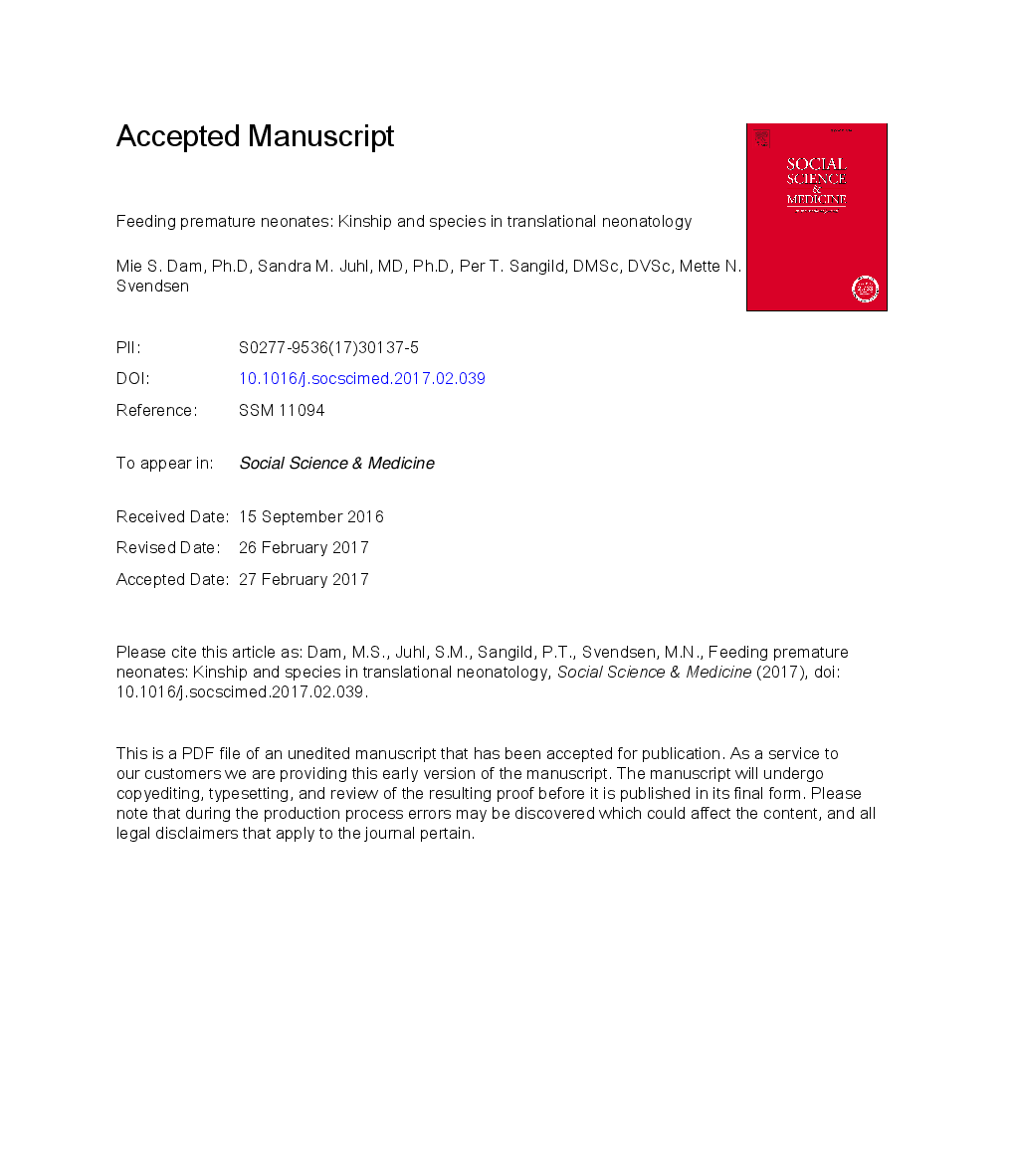ترجمه فارسی عنوان مقاله
تغذیه نوزادان نارس: خویشاوندی و گونه در نوزادان نسبی
عنوان انگلیسی
Feeding premature neonates: Kinship and species in translational neonatology
| کد مقاله | سال انتشار | تعداد صفحات مقاله انگلیسی |
|---|---|---|
| 140006 | 2017 | 33 صفحه PDF |
منبع

Publisher : Elsevier - Science Direct (الزویر - ساینس دایرکت)
Journal : Social Science & Medicine, Volume 179, April 2017, Pages 129-136
ترجمه کلمات کلیدی
دانمارک، تحقیقات ترجمه ای، نوزادان نارس، مدل های حیوانی، تغذیه نوزادان، خویشاوندی بینهایت، قومشناسی چندگانه،
کلمات کلیدی انگلیسی
Denmark; Translational research; Preterm infants; Animal models; Neonate feeding; Interspecies kinship; Multispecies ethnography;

